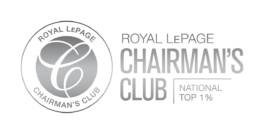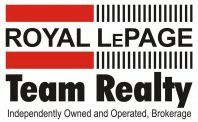Improving your credit score is one of the most effective ways to enhance your mortgage eligibility and secure favorable loan terms. Your credit score plays a crucial rule when it comes to securing a mortgage. Understanding how to boost your credit score for home buying in Ottawa can make the difference between an affordable mortgage and a missed opportunity.
Here, we outline effective strategies to help you achieve mortgage credit improvement and prepare for your dream home purchase.
Why Your Credit Score Matters
A strong credit score can directly impact your mortgage eligibility, loan terms, and interest rates. Lenders use it to assess your financial reliability. The higher your credit score, the better the loan terms you can secure, potentially saving you thousands over the life of your mortgage.
Proven Strategies to Boost Your Credit Score
These strategies will guide you through strengthening your financial profile to approach the home-buying process with confidence.
1. Pay Down Existing Debts
Your debt levels, particularly credit card balances, play a significant role in your credit score in home-buying in Ottawa. Lenders consider your debt-to-income ratio, and having high outstanding deaths can signal a risk. By reducing debt, you not only lower this ratio but also improve your credit utilization, which is an important factor in your credit score.
Prioritize paying off high-interest debts first such as credit card balances as these not only cost more over time but also tend to have a more substantial impact on your credit score. Aim to pay larger than the minimum monthly payment, or if possible, focus on paying off one debt at a time, applying any freed-up cash flow to the next debt on the list.
Example, if you owe $2,500 on a credit card with a $5,000 limit, your utilization rate is 50%. Aim to break down to below 30%, ideally even below 10%, by paying off as much as possible each month. For instance, paying down this balance to $500 would bring your utilization to 10% giving your score a boost.
2. Keep Your Credit Utilization Low
Credit utilization refers to how much of your available credit you’re currently using. It’s one of the most important factors in your credit score calculation, accounting for around 30% of the score. A lower utilization rate reflects better financial health. Lenders prefer to see that you’re not maxing out your credit, as high balances could apply financial instability or overstending.
Try spreading out your expenses across multiple cards rather than maxing out one card to keep balances low or pay off balances in full each month.
For instance if you have three cards with a combined credit limit of $15,000, it’s better to keep your balances below $4,500 (30%). Regularly paying off your balance in full every month, or by setting a personal spending cap well below your card’s limit helps maintain a low utilization rate and helps boost credit score for mortgage overnight.
3. Avoid New Credit Card Inquiries
Each time you apply for new credit, such as a credit card or loan, the lender performs a “hard inquiry” on your credit which temporarily lowers your score. Well occasional inquiries don’t heavily impact your score, multiple inquiries within a short period can make you appear risky to lenders and can temporarily lower your score. If needed, request credit limit increases instead of new accounts. Avoid applying for new credit 6 months to a year before a major loan application like a mortgage.
Plan ahead. If you anticipate buying a home within the next 6 to 12 months, avoid applying for new credit lines. If you need credit, consider options like increasing the limit on an existing card rather than opening a new one.
Example: if you’re planning to buy a home within the year, avoid opening new credit accounts or financing large purchases, like a car. Instead, focus on managing your current accounts responsibly to demonstrate financial stability to future lenders.
4. Pay Bills On Time
Payment history is the largest factor in your credit score, accounting for 35% of it. Consistently paying bills on time shows lenders that you’re reliable and responsible with credit. Missed or late payments can stay on your credit report for up to 7 years, so it’s critical to establish a strong payment history before mortgage application.
Obtain a report from Equifax and TransUnion and carefully examine each entry. If you notice an error—such as a balance that doesn’t match your records or an account you’ve never opened—contact the bureau immediately to dispute it. Correcting errors could lead to an immediate increase in your score.
Example: Set up automatic payments or us reminders to ensure you don’t miss any payments. Even small bills, like utility or phone payments, contributor credit history if reported to credit bureaus, so keep up with them to help boost your score.
5. Check Your Credit Report for Errors
Errors on your credit report, such as incorrect payment history or accounts that do not belong to you, can negatively impact your credit score.
Reviewing your credit report regularly helps identify and correct inaccuracies, which can lead to an improved score once resolved.
Example: You can request a free credit report from Equifax and TransUnion. If you notice discrepancies, such as incorrect late payment, contact the credit bureau and the creditor to have it corrected. Correcting errors can help you increase credit score by 100 points if resolved promptly.
6. Keep Old Accounts Open
The length of your credit history accounts for about 15% of your score. Closing older accounts can shorten your credit history and reduce your overall available credit, which can increase your credit utilization rate.
Keep old accounts open, especially those with no annual fee, to maintain your credit age.
Example: If you have an old credit card with a $0 balance, keep it open, especially if it has a long history and no annual fee. This account can contribute positively to both your credit age and your available credit, both of which are beneficial for your score. An old credit card with no balance can positively contribute to your credit history and available credit.
7. Consider a Secured Credit Card if Needed
For those who are rebuilding credit or don’t have much credit history, a secured credit card can be a good option. These cards require a deposit that serves as your credit limit, helping you build credit without a significant risk to the lender.
Try to use a secured card for small purchases and pay the balance in full each month to build a positive credit history.
If you’ve experienced past credit issues, using a secured credit card for a year can help maintain you’ve established a positive credit history. Use it responsibly by making small purchases and paying the balance in full each month to demonstrate reliable credit behavior.
8. Limited Credit Applications
Frequent credit applications suggest financial stability and lower your credit score.
Space out credit applications and apply only for new credit when necessary. Applying for multiple credit cards in a short span of time can lead to multiple hard inquiries and lower your score. Plan and research before applying for any new credit.
Preparing for Mortgage Approval
Understanding the factors that influence as well as learning how to increase credit score quickly is only part of the home buying process.
To understand the full financial picture, it’s essential to know your home’s potential value and budget accordingly. Read our guide on How to Estimate the Value of Your Home in Today’s Market for more insights.
Familiarize yourself with programs designed to support buyers, such as the First-Time Home Buyers Incentive. This can provide substantial savings and assist you in navigating your budget effectively.
Discover Your Dream Home in Ottawa
Ready to start your home search? Explore listings tailored to your budget and preferences. Whether you’re searching for MLS Listings under $350,000, upscale Luxury Properties, or seeking more unique options like Waterfront Homes for Sale, you’ll find an array of properties that match your needs.
Ready to take the next step toward homeownership?
Reach out to a Royal LePage Team Realty agent today to help guide you on your path to securing your dream home.
 Market Snapshot: Sales of homes in Ottawa saw an 11.8% increase in November 2023 yet still 3.1% below the five-year average. Despite the natural slowdown typical of the season as the holidays approach, some buyers are holding off, hoping for further interest rate reductions.
Market Snapshot: Sales of homes in Ottawa saw an 11.8% increase in November 2023 yet still 3.1% below the five-year average. Despite the natural slowdown typical of the season as the holidays approach, some buyers are holding off, hoping for further interest rate reductions.
















